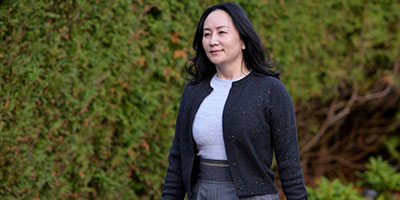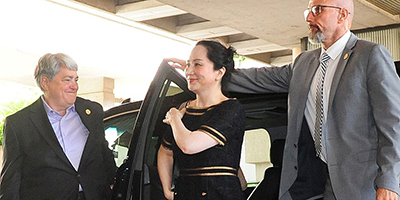The Chinese Ministry of Industry and Information Technology (MIIT) has voiced opposition regarding a recent ban by the US Federal Communications Commission (FCC) on China Telecom’s US subsidiary.
Policy News
Nepal to debut Internet and telecom services on international airlines
The Nepal Telecommunications Authority (NTA), an autonomous telecommunications regulatory body, together with the Civil Aviation Authority of Nepal has approved international airlines to use Nepal’s Internet and telecom services for its passengers.
India announces major telecoms reforms to boost industry
The Union Cabinet approved on Wednesday several structural and process reforms in a relief package targeting the telecom sector to ensure its healthy growth in a digital era.
China slashes import tax to boost semiconductor sector
China announced new import cuts this week to boost the nation’s semiconductor industry. This follows after US sanctions on some Chinese companies including tech giant Huawei and chipmaker SMIC to ease the impact on the industry.
South Korea approved bill for Google and Apple to allow third-party in-app payment
South Korea’s parliament has approved of a bill on Tuesday, the first of its kind in the world, requiring Google and Apple to allow users to pay for in-app purchases via alternative payment systems, as opposed to software developers using only their payment systems for in-app purchases.
Huawei CFO Meng Wanzhou asks court to loosen bail conditions
Lawyers for Huawei Chief Financial Officer Meng Wanzhou argued in a court to let her leave home without the security detail that was a condition of her bail since she was released after her December 2018 arrest.
Huawei CFO case: defense says US extradition request info ‘unreliable’
In a bid to persuade a Canadian court from refusing the US government’s extradition request of Huawei chief financial officer Meng Wanzhou, defense lawyers have questioned the reliability of information provided by the United States.
Ericsson files lawsuit against Samsung over royalty payments
Ericsson has filed a lawsuit against Samsung in the US, for their alleged violation of commitments related to royalty payments and patent licenses.
Korean court orders Netflix to pay for network usage
Netflix has been ordered by a Seoul court to pay network usage fees to mobile carriers. This decision was reached after Netflix brought SK Broadband, the internet protocol subsidiary of SK Telecom to court, following a complaint filed against Netflix with the Korea Communications Commission in November 2019. Netflix had asked the court to review if the US-based over-the-top (OTT) content provider is obligated to pay for SK Broadband’s network usage.
Transplanting Legal Context without the Law: Double Criminality in Meng Wanzhou’s Extradition Case
By Sean D. Yates
Introduction
Comparative lawyers have for over a century examined the ways different legal orders organize their laws. They have observed how law travels, how rather than reinvent the wheel, lawmakers will often copy or borrow legal ideas from another place (or time) and use it themselves. Law, however, doesn’t always fit. That is, it doesn’t always do what it is supposed to do. It may fail to achieve its intended purpose, may do better than expected, or may end up fulfilling an unintended purpose. Comparatists have also therefore highlighted the importance of the social context from which law is taken and into which it is placed, and how the transplanting exercise inevitably results in the law in question undergoing a transformation. It is no longer the same law because it operates differently in a different social context.















